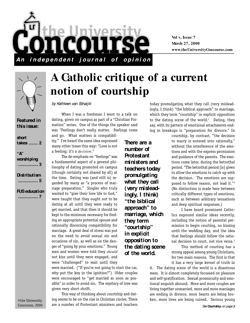Inner life of society determines value of economic systems
by Daniel Ellis
I found Thomas Stork’s contribution on distributism enlightening. My thanks to him for the helpful distinctions between it and capitalism. If that’s what distributism is, then I think I like it. My reflection is upon which system works better in a fallen world. Consider two progressions. First, one that moves away from secular, unchristian capitalism, to a completely Christian inner form, where every economic decision is made with individual human dignity as a priority. At this point would we not have essentially the same economic environment that Mr. Stork describes under the name distributism? Second, consider a progression away from Christian distributism to a completely secular form of the same, where governments and other power-wielding entities control and regulate land-ownership and jobs are assigned to meet geographical quotas. With God forgotten, and decisions guided by self-serving motives, would not public outcry soon be for reform and freedom, with the end result being the equivalent of a looser and freer-exchanging capitalism?
What I suggest is that distributism is impossible without the spiritual conversion of nations. It can not be legislated, or it ends up looking and feeling like communism. In other words, to change the economic system, let us spend our efforts changing men’s’ hearts. The economic system will then follow suit, and I wouldn’t be surprised if it looks a lot like distributism.
Daniel Ellis, FUS class of ‘88


